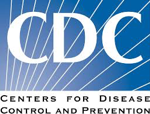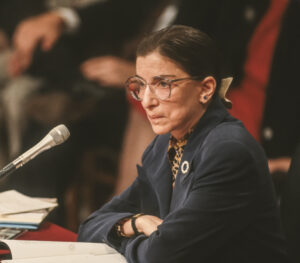 Seven thousand people have registered to attend this year’s United States Conference on HIV/AIDS. Obviously, making the meeting free was a big contributor to this year’s attendance. These are tough times and everyone is hurting, so NMAC didn’t have another option. Thank you to our 2020 USCHA sponsors for standing with us and community.
Seven thousand people have registered to attend this year’s United States Conference on HIV/AIDS. Obviously, making the meeting free was a big contributor to this year’s attendance. These are tough times and everyone is hurting, so NMAC didn’t have another option. Thank you to our 2020 USCHA sponsors for standing with us and community.
 This year’s virtual conference will be unlike any USCHA. While it will never replace in-person meetings, we hope it will remind everyone that they are part of the HIV family. The Opening Plenary sets the tone for the meeting by examining how racism stops our work from being successful and blocks our efforts to end HIV. It is a tough plenary, particularly for White people with privilege. It’s not enough to say you stand with Black lives; you also have to do the work. You have to hear and understand the stories of Black and Brown people and how racism impacts our daily existence. Part of the plenary will be in Spanish (with English translation) because NMAC wants attendees to understand the challenges facing non-English speaking or English as a second language clients and staff.
This year’s virtual conference will be unlike any USCHA. While it will never replace in-person meetings, we hope it will remind everyone that they are part of the HIV family. The Opening Plenary sets the tone for the meeting by examining how racism stops our work from being successful and blocks our efforts to end HIV. It is a tough plenary, particularly for White people with privilege. It’s not enough to say you stand with Black lives; you also have to do the work. You have to hear and understand the stories of Black and Brown people and how racism impacts our daily existence. Part of the plenary will be in Spanish (with English translation) because NMAC wants attendees to understand the challenges facing non-English speaking or English as a second language clients and staff.
The meeting starts on Monday, October 19th at Noon (Eastern) or 9 AM (Pacific). An e-newsletter will go out that day at 10 AM (eastern)/7 AM (Pacific) with the conference URL and how to log onto the conference platform. You only need the email address that you used at registration. The conference platform will open at 11 AM (Eastern) with the Opening Plenary at Noon (Eastern)/9 AM (Pacific). The time zones can get a little tricky; however, sessions will be online for the next 12 months. NMAC will also host a webinar on Thursday, October 15th at 1 PM (Eastern) to familiarize attendees on the conference platform. Register here.
 Get there early on Monday to explore the conference platform and to get a good seat at the Opening. The conference lobby sits at the intersection of Black Lives Matter Plaza in Washington, DC and the John Lewis mural in Atlanta. The exhibit hall is in front of the fence at Lafayette Square where protesters have sent messages to the White House. The information desk is in front of the Breonna Taylor and Trayvon Martin murals. NMAC’s goal is to show the HIV movement that we are part of the greater struggle for racial justice and health equity. Our work to end the epidemic must stand in solidarity with Black Lives Matter.
Get there early on Monday to explore the conference platform and to get a good seat at the Opening. The conference lobby sits at the intersection of Black Lives Matter Plaza in Washington, DC and the John Lewis mural in Atlanta. The exhibit hall is in front of the fence at Lafayette Square where protesters have sent messages to the White House. The information desk is in front of the Breonna Taylor and Trayvon Martin murals. NMAC’s goal is to show the HIV movement that we are part of the greater struggle for racial justice and health equity. Our work to end the epidemic must stand in solidarity with Black Lives Matter.
 While this all sounds amazing, my real concern is “will the platform crash with close to 7,000 people online.” In other words, we also need your patience and understanding. Staff is working hard, but it will be a photo finish. Like everyone, we’ve had to pivot into the unknown. We don’t know what we don’t know so we may be asking the wrong questions. Taking risks is the fuel that runs our movement. When HIV was discovered, we had no idea what to do. We only had each other and the hope that our friends would not die alone.
While this all sounds amazing, my real concern is “will the platform crash with close to 7,000 people online.” In other words, we also need your patience and understanding. Staff is working hard, but it will be a photo finish. Like everyone, we’ve had to pivot into the unknown. We don’t know what we don’t know so we may be asking the wrong questions. Taking risks is the fuel that runs our movement. When HIV was discovered, we had no idea what to do. We only had each other and the hope that our friends would not die alone.
The 2020 Conference Program Book will go online this week. Please download it in advance of the meeting to figure out which sessions you want to attend live. If you miss a session, it will be online for the next 12 months. This year there are four plenaries. NMAC is hosting the Opening and Closing Plenaries. Gilead will put on a second plenary on Monday, October 19th. ViiV put together the Tuesday, October 20th plenary. NMAC thanks our sponsors for their support. It allows us to make the meeting free. It is important to understand that sponsors had no input into NMAC’s sessions and we had no input into theirs. It is a difficult tightrope to walk between the need for resources to put on the meeting and keeping our voices independent of outside influence. It is particularly challenging for people of color who do not have the same access to money as our white counterparts.
 Workshops will be prerecorded and live. The challenge will be the “live” question and answer portion with the workshop presenters. During this section, participants will hopefully be able to ask questions via the “chat” box. While most of us have been on zoom calls with 30 or 40 people, what happens when you have hundreds of attendees? There are 94 workshops and institutes. This photo was taken from the PACHA (President’s Advisory Council on HIV/AIDS) workshop. NMAC wants to thank all of the presenters who donated their time.
Workshops will be prerecorded and live. The challenge will be the “live” question and answer portion with the workshop presenters. During this section, participants will hopefully be able to ask questions via the “chat” box. While most of us have been on zoom calls with 30 or 40 people, what happens when you have hundreds of attendees? There are 94 workshops and institutes. This photo was taken from the PACHA (President’s Advisory Council on HIV/AIDS) workshop. NMAC wants to thank all of the presenters who donated their time.
 Millions of people are losing their jobs because of COVID-19. At the same time, the HIV movement is getting its first influx of new money to end the HIV epidemic. With all this need, it was easy to envision a Jobs Fair, but much more difficult to make an integral part of this virtual meeting. Thankfully, we received announcements from more than 30 organizations to post during the conference. If you are looking for employment, please bring your resume and schedule information interviews with organizations who are hiring. NMAC’s goal is for our movement to hire people from the communities hardest hit by HIV.
Millions of people are losing their jobs because of COVID-19. At the same time, the HIV movement is getting its first influx of new money to end the HIV epidemic. With all this need, it was easy to envision a Jobs Fair, but much more difficult to make an integral part of this virtual meeting. Thankfully, we received announcements from more than 30 organizations to post during the conference. If you are looking for employment, please bring your resume and schedule information interviews with organizations who are hiring. NMAC’s goal is for our movement to hire people from the communities hardest hit by HIV.
Lounges are NMAC’s version of online affinity sessions. This year we invited community to put together lounges for likeminded groups to support people in the field and check-in with each other. COVID-19 has isolated too many people. As we know, this isolation can lead to depression. Look for lounges for People Over 50 Living with HIV, Transgender Lounge, PWH Lounge, Youth Lounge, and others. Lounges will be huge zoom check-in calls to see the faces and hear the voices of your colleagues. They might be a little messy, but that’s what makes them community.
 The Closing Plenary on Wednesday, October 21st is our Federal Plenary. Rather than having the same old talking heads with their PowerPoints, this year’s plenary has NMAC staff asking questions to our federal leaders. We are very thankful that our old friend Dr. Anthony Fauci has recorded a special plenary talk. With all his work on COVID-19, we were honored that he found time to address USCHA.
The Closing Plenary on Wednesday, October 21st is our Federal Plenary. Rather than having the same old talking heads with their PowerPoints, this year’s plenary has NMAC staff asking questions to our federal leaders. We are very thankful that our old friend Dr. Anthony Fauci has recorded a special plenary talk. With all his work on COVID-19, we were honored that he found time to address USCHA.
It’s going to be a very different United States Conference on HIV/AIDS. We are thankful that so many of you will be joining us from your computer screens around the country. I miss everyone, we will be together again…


 Over 5,400 people have registered. To train attendees on the conference platform, NMAC will host a webinar on Thursday, 15th at 1 PM (eastern).
Over 5,400 people have registered. To train attendees on the conference platform, NMAC will host a webinar on Thursday, 15th at 1 PM (eastern). 








 Over 5,000 people have registered for this year’s
Over 5,000 people have registered for this year’s 

 We received over 250 applications for our iPad program to help address the digital divide. Our goal is to have the iPads in the mail by Oct 9th. NMAC will go public with the decisions on October 13th. So many of the applicants talked about how they were unemployed as a result of COVID-19. Unfortunately, there is much more need than money. In full transparency, NMAC will share the demographics of who got selected and tell the stories of some of the recipients in my October 13th e-newsletter.
We received over 250 applications for our iPad program to help address the digital divide. Our goal is to have the iPads in the mail by Oct 9th. NMAC will go public with the decisions on October 13th. So many of the applicants talked about how they were unemployed as a result of COVID-19. Unfortunately, there is much more need than money. In full transparency, NMAC will share the demographics of who got selected and tell the stories of some of the recipients in my October 13th e-newsletter. The Denver Principles were all about the empowerment of People Living with AIDS. Thirty-seven years later these principles still ring true, only now we have COVID-19, Black Lives Matter, climate change, ICE, massive unemployment, and economic devastation. Now more than ever, we are fighting for our lives and the lives of the people we love. We will see you online.
The Denver Principles were all about the empowerment of People Living with AIDS. Thirty-seven years later these principles still ring true, only now we have COVID-19, Black Lives Matter, climate change, ICE, massive unemployment, and economic devastation. Now more than ever, we are fighting for our lives and the lives of the people we love. We will see you online.

 Webinar with Congresswomen Barbara Lee
Webinar with Congresswomen Barbara Lee Photo or Video for USCHA
Photo or Video for USCHA How to Get A Federal Job
How to Get A Federal Job 2020 Virtual USCHA
2020 Virtual USCHA


 “I was diagnosed with HIV almost 30 years ago. And, as a long-term survivor, I deal with issues like isolation and depression.
“I was diagnosed with HIV almost 30 years ago. And, as a long-term survivor, I deal with issues like isolation and depression.
 Against the backdrop of the fall election, COVID-19 and massive unemployment, there is a call for racial justice and Black Lives Matter. This is the fight of NMAC’s life and mission. Our long and historic commitment to health equity and racial justice will play itself out starting this fall with employment. To NMAC, employment is racial justice. Our movement has hundreds of millions of dollars in new funding to end the HIV epidemic. This funding should translate into tens of thousands of new jobs. At a time when so many are unemployed, this funding can be a lifeline to communities who are hurting. It becomes an issue of racial justice because NMAC is calling on employers to hire the communities that are most impacted by HIV. Unfortunately, this means communities of color.
Against the backdrop of the fall election, COVID-19 and massive unemployment, there is a call for racial justice and Black Lives Matter. This is the fight of NMAC’s life and mission. Our long and historic commitment to health equity and racial justice will play itself out starting this fall with employment. To NMAC, employment is racial justice. Our movement has hundreds of millions of dollars in new funding to end the HIV epidemic. This funding should translate into tens of thousands of new jobs. At a time when so many are unemployed, this funding can be a lifeline to communities who are hurting. It becomes an issue of racial justice because NMAC is calling on employers to hire the communities that are most impacted by HIV. Unfortunately, this means communities of color. The unknown in this calculation is a vaccine. While I am very hopeful, I believe the first iterations of the COVID-19 vaccine will only be partially effective. Is a partially effective vaccine enough to turn around the economic devastation that this virus has caused? Would you be willing to travel with a vaccine that is 50% effective? If not 50%, what is the percentage that would give you confidence and how long will it take to find that vaccine?
The unknown in this calculation is a vaccine. While I am very hopeful, I believe the first iterations of the COVID-19 vaccine will only be partially effective. Is a partially effective vaccine enough to turn around the economic devastation that this virus has caused? Would you be willing to travel with a vaccine that is 50% effective? If not 50%, what is the percentage that would give you confidence and how long will it take to find that vaccine? Transparency is important because too many people don’t trust people in power, particularly people in government. Black Lives Matter is calling for a new accountability when spending the public’s money. If we are going to build an HIV movement that is committed to racial justice, then it starts with being transparent about the money. Money is power and we need to monitor how HIV funds are being spent.
Transparency is important because too many people don’t trust people in power, particularly people in government. Black Lives Matter is calling for a new accountability when spending the public’s money. If we are going to build an HIV movement that is committed to racial justice, then it starts with being transparent about the money. Money is power and we need to monitor how HIV funds are being spent. Just as I requested that the CDC be transparent with the money they are keeping, I also think it is important for health departments to be transparent. While the vast majority are great, there are some health departments that keep too much of the money. After all these years fighting HIV, we know that community, particularly people living with HIV/AIDS, are core to the solution.
Just as I requested that the CDC be transparent with the money they are keeping, I also think it is important for health departments to be transparent. While the vast majority are great, there are some health departments that keep too much of the money. After all these years fighting HIV, we know that community, particularly people living with HIV/AIDS, are core to the solution. Nearly 250 people have registered for our August 13th Webinar with Raniyah Copeland from the
Nearly 250 people have registered for our August 13th Webinar with Raniyah Copeland from the 